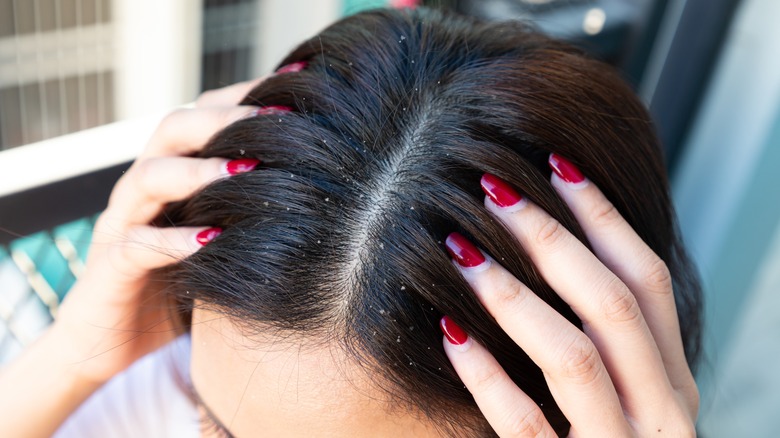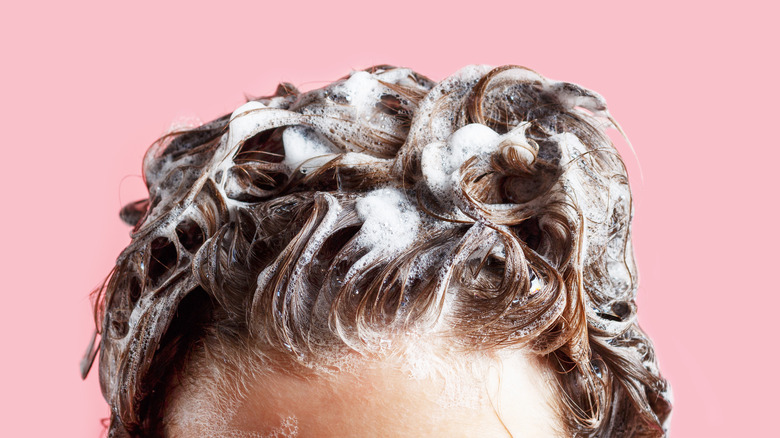What's The Difference Between Scalp Psoriasis And Dandruff?
Scalp psoriasis and dandruff are two conditions that affect the scalp and may often be mistaken for one another. If you aren't sure whether you have scalp psoriasis or dandruff, Verywell Health explains that there are multiple differences between the two. For starters, dandruff is a common condition marked by flaking and itching of the scalp area. The scalp is often red and dry and may become infected if open wounds form from excessive scratching. While those with scalp psoriasis often have flaking and itching as well, they may also experience inflamed red or white bumps, plaques, and scales. Hair loss may also occur with psoriasis but not with dandruff.
The causes of each condition are also different (via Verywell Health). The jury is still out on the specific cause of dandruff, but theories point to the combination of a fungus, known as Malassezia yeast, and an excessively oily scalp. Other factors include hormone fluctuations, genetics, living in cold and dry climates, and shampooing more often than recommended. Psoriasis, on the other hand, is an auto-immune disorder. The inflammation seen on the scalp is the result of the body attacking healthy skin cells. The condition is often genetic and occurs more frequently in individuals with lighter skin complexions.
While dandruff can be cured, scalp psoriasis, unfortunately, cannot. However, there are ways to treat both conditions and reduce symptoms in the case of psoriasis.
How to treat scalp psoriasis and dandruff
If you have dandruff, you may be pleased to know that there are multiple ways to treat it (per Mayo Clinic). The goal of treatments is to hydrate your scalp while reducing oil and skin cell build-up. In some cases, a mild shampoo will take care of the problem. However, more severe cases will require the use of a medicated shampoo specifically designated for dandruff.
Dandruff-specific shampoos contain zinc pyrithione, which kills the bacteria and fungi that contribute to the condition (via Mayo Clinic). They are widely available without a prescription and can be found in the beauty aisle of most large supermarkets and pharmacies. You may also want to consider fluocinolone shampoos, which contain a corticosteroid to reduce itchiness and dryness. Anti-fungal shampoos with selenium sulfide and ketoconazole are another great option.
While there is currently no cure for scalp psoriasis, WebMD outlines a number of treatment methods to get symptoms under control. You will first need to remove the scales on your scalp by applying topical creams with lactic acid, salicylic acid, zinc pyrithione, urea, or selenium sulfide. The next step is to run a brush over your scalp to make the scales easier to wash out. Follow up with a salicylic acid shampoo and then moisturize your scalp. For continued maintenance, experts recommend coal tar shampoos and steroids to reduce inflammation. If this regimen doesn't prove effective, your doctor may also prescribe an additional medicated lotion.


